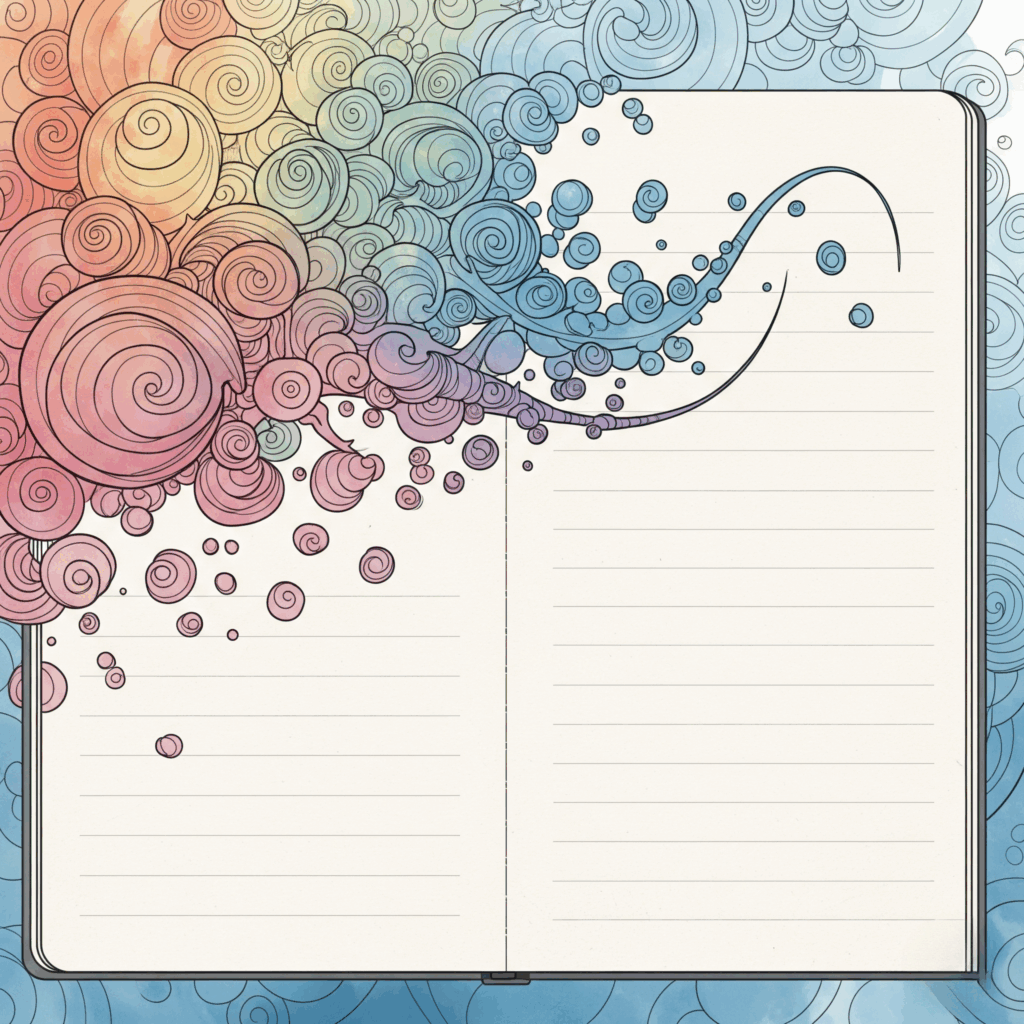The Power of the Pen
Understanding Therapeutic Journaling
Therapeutic journaling goes beyond simply recording daily events. It’s a deliberate practice of self-reflection, where you engage with your inner experiences in a structured way. This process can help you identify patterns, gain insights, and develop healthier coping mechanisms. Think of it as a private conversation with yourself, guided by the intention to promote emotional and psychological well-being.
The Science-Backed Benefits
Research consistently highlights the significant advantages of therapeutic journaling:
- Emotional Regulation: By externalizing your emotions, you create a psychological distance that allows for better processing and regulation. Studies show that journaling can reduce the intensity of negative emotions like anger and anxiety.
- Stress Reduction: Writing about stressful events can help to mitigate their impact on your mental and physical health. It provides an outlet for tension and can lead to a greater sense of calm.
- Improved Problem-Solving: Journaling can help you approach challenges from different perspectives, fostering creative solutions and enhancing your decision-making abilities.
- Enhanced Self-Awareness: Regularly reflecting on your thoughts and feelings allows you to identify triggers, understand your reactions, and recognize areas for personal growth. This heightened self-awareness is crucial for personal development.
- Boosted Mood and Well-being: The act of writing can be inherently cathartic. Expressing gratitude, celebrating small victories, or simply acknowledging your feelings can significantly improve your overall mood and sense of well-being.
- Cognitive Restructuring: Journaling can be a valuable tool for challenging negative thought patterns. By writing down distorted thoughts and examining them, you can begin to reframe them into more realistic and positive perspectives.

Getting Started with Your Therapeutic Diary
Beginning your journaling journey doesn’t require any special skills, just a willingness to explore.
- Choose Your Medium: Whether it’s a physical notebook, a digital app, or a simple word document, select what feels most comfortable and accessible to you. The key is consistency.
- Find Your Space and Time: Designate a quiet time and space where you can write without interruption. Even 10-15 minutes a day can make a difference.
- Prompts to Guide You: Don’t feel pressured to have profound insights every time you write. Start with simple prompts:
- “What’s on my mind right now?”
- “How am I feeling today, and why?”
- “What am I grateful for?”
- “What challenges am I facing, and what are my thoughts on them?”
- “If I could tell my past self one thing, what would it be?”
- Be Non-Judgmental: This is your private space. There’s no right or wrong way to write. Allow your thoughts and feelings to flow freely without censoring yourself.
- Consistency is Key: Regular journaling, even for short periods, is more effective than sporadic long sessions. Build it into your routine like any other self-care practice.
- Review and Reflect: Periodically re-read your entries. This can provide valuable insights into your progress, recurring themes, and personal growth.

Journaling Techniques to Explore
Once you’re comfortable with the basics, you can experiment with different journaling techniques:
- Stream of Consciousness: Write continuously without stopping, letting thoughts flow freely onto the page.
- Gratitude Journaling: Focus specifically on things you’re grateful for each day. This can shift your perspective towards positivity.
- Bullet Journaling for Mood Tracking: Use a bullet journal to quickly log your mood, triggers, and activities, identifying patterns over time.
- Cognitive Behavioral Therapy (CBT) Journaling: Structure your entries around identifying situations, thoughts, emotions, and behaviors to challenge negative cycles.
- Letter Writing (to yourself or others, unsent): Write letters expressing feelings that you may not be able to articulate verbally. This can be deeply cathartic.

When to Seek Professional Support
While therapeutic journaling is incredibly beneficial, it’s not a substitute for professional mental health support. If you’re struggling with severe mental health conditions, persistent distress, or feel overwhelmed, please consult with a therapist or counselor. Journaling can be a valuable complement to therapy, but it should not replace it.
Conclusion
Embracing therapeutic journaling is an investment in your mental and emotional well-being. It’s a powerful, accessible, and scientifically supported practice that empowers you to become more self-aware, resilient, and in tune with your inner world. Start today, and discover the transformative power of the pen.

Leave a Reply